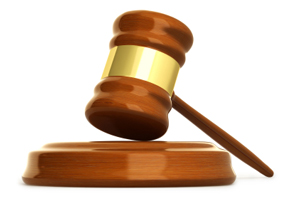
Medical device giants Medtronic (NYSE:MDT) and Boston Scientific (NYSE:BSX) will head back to court to hash out the details of a years-long patent battle over cardiac rhythm therapy device technology.
U.S. Court of Appeals for the Federal Circuit Judges this week overturned a Delaware court’s decision that Medtronic hadn’t infringed on Boston Scientific’s patents, finding that the lower court used "a legally incorrect allocation of the burden of proof." The federal court sent the case back for reconsideration.
The long-running dispute concerns fundamental CRT technology covered in a pair of patents issued to CRM pioneer Dr. Morton Mower, credited with inventing the technology that ultimately became known as a cardiac resynchronization therapy device.
Mower’s CRT helps the hearts left and right ventricles beat simultaneously, increasing the heart’s efficiency, and 2 patents for the device are the property of Mirowski Family Ventures, which exclusively licenses both to Guidant Corp. Boston Scientific acquired Guidant in 2006 for an eyebrow-raising $26 billion.
Medtronic in 1991 entered into a sublicense agreement for the patents with Eli Lilly (NYSE:LLY), which owned Guidant at the time. The agreement gave Medtronic leverage to challenge 1 of the patents, which the medical device company began doing in 2003.
Over the course of several years Medtronic, Eli Lilly and MFV battled over the validity of 1 of the CRT patents and whether or not Medtronic’s devices infringed on the technology.
Medtronic and MFV formed a Litigation Tolling Agreement to hash out the details while Medtronic paid royalties into escrow, and in 2007 MFV handed Medtronic a list of technologies that were potentially infringing on the CRT patents.
Medtronic disagreed with the findings, filing a complaint for declaratory judgement against the patents. Because Medtronic was still a licensee of MFV’s technology, MFV could not file a counterclaim on either of its patents.
The case finally closed on a question over who was responsible for providing the burden of evidence – the patentee, MFV, or the defendant, Medtronic. Delaware District Court Judge Susan Robinson ruled in April 2011 that the burden rested on the patentee, and that MFV, which mainly provided responses to Medtronic’s arguments and did not lay out a point-by-point description of the alleged infringement, had not proved its case.
MFV and Boston Scientific appealed that decision, arguing that Medtronic bore the burden of proof because it originally filed the lawsuit. Since the terms of MFV’s deal with Medtronic prevented MFV from filing counterclaims on its patents and required Medtronic to file for declaratory judgement, Medtronic was the party "seeking relief from the court" and thus responsible for proving its case, MFV argued.
Federal Circuit Judges Richard Linn, Alan Lourie and Sharon Prost agreed, concluding that the lower court had mistakenly but the burden of proof on MFV when Medtronic had "disturbed the status quo" with its lawsuit.
"Medtronic is unquestionably the party now requesting relief from the court: it already has a license; it cannot be sued for infringement; it is paying money into escrow; and it wants to stop," Linn wrote in the decision. "In contrast, regarding the patents at issue here, MFV seeks nothing more than to be discharged from the suit and be permitted to continue the quiet enjoyment of its contract."
"In other words, it is Medtronic and not MFV that is asking the court to disturb the status quo ante and to relieve it from a royalty obligation it believes it does not bear," Linn added. "Consistent with the above, for the court to disturb the status quo ante, Medtronic must present evidence showing that it is entitled to such relief."

